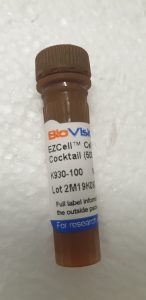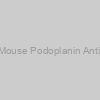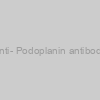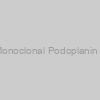Antibodies, Assay Kits, Biology Cells, Clia Kits, Ctip Antibody, Culture Cells, Devices, DNA, DNA Templates, DNA Testing, Elisa Kits, Equipments, Gels, Isotypes, Medium & Serums, Mmp14 Antibody, Nmnat1 Antibody, Nse Antibody, Otx2 Antibody, Panel, PCR, Pcr Kits, Peptides, Reagents, Recombinant Proteins, Rfp Antibody, RNA, Setd2 Antibody, Sod2 Antibody, Vector & Virus, Vitronectin Antibody
Evaluation of the diagnostic test for rapid detection of covid-19 antigen (Panbio Covid rapid test) in primary care
Goal: COVID-19 an infection requires early prognosis, with PCR being the gold normal check. The protocols advocate using fast antigenic exams that require analysis in precise scientific follow. The target was to judge the diagnostic check for fast antigen detection, Panbio Covid fast check, in contrast with PCR, in sufferers with signs of 5 or much less days of evolution and with a high-suspicion of an infection by COVID-19 in a well being heart.
Supplies and strategies: 103 sufferers over 14 years of age who attended an city well being heart situated within the Usera District of Madrid, with high-suspicion of COVID-19 an infection, within the first 5 days of evolution from the onset of signs throughout the month of November 2020.
Interventions: diagnostic exams for COVID-19 are carried out: antigen and PCR.
Outcomes: The prevalence of the illness was 24.3% based on the PCR check and 17.5% based on the fast antigenic check. The sensitivity was 72% (95% CI: 54.3-89.6%). The specificity was 100%. The optimistic and unfavorable predictive values have been 100% and 91.8% respectively. Within the bivariate evaluation, there was no relationship between signs and the presence of illness, apart from myalgias (p=0.030). The multivariate evaluation discovered a relationship between cough, dyspnea, fever, myalgia, anosmia/ageusia, and ocular signs and the presence of illness.
Conclusions: The sensitivity and specificity for the Panbio fast antigen check are just like different research carried out in major care. In high-prevalence of illness and with extremely suspected signs, optimistic check outcomes might be thought-about definitive, however unfavorable outcomes would require affirmation. Myalgia, fever, dyspnea, anosmia/ageusia, and ocular signs could also be extra associated to the presence of COVID-19.
Objetivo: La infección por covid-19 requiere un diagnóstico temprano, siendo la PCR la prueba gold estándar. Los protocolos propugnan el uso de pruebas antigénicas rápidas que precisan de evaluación en la práctica clínica actual. El objetivo fue evaluar la prueba diagnóstica de detección rápida de antígeno, Panbio Covid fast check, comparada con la PCR, en los pacientes con clínica de 5 o menos días de evolución y con alta sospecha de infección por covid-19 en un centro de salud.
Materiales y métodos: Un complete de 103 pacientes mayores de 14 años que acudieron a un centro de salud urbano ubicado en el Distrito de Usera de Madrid, con alta sospecha de infección por covid-19, en los primeros 5 días de evolución desde el inicio de los síntomas durante el mes de noviembre de 2020. Como intervenciones se realizan las pruebas diagnósticas de covid-19: antígeno y PCR.
Resultados: La prevalencia de la enfermedad fue del 24,3% según la prueba PCR y del 17,5% según el check antigénico rápido. La sensibilidad fue del 72% (IC al 95%: 54,3-89,6%). La especificidad fue del 100%.
Los valores predictivos positivo y negativo fueron del 100% y del 91,8%, respectivamente. En el análisis bivariante, no hubo relación entre los síntomas y la presencia de enfermedad, excepto para las mialgias (p = 0,030). En el análisis multivariado se encontró relación entre la tos, la disnea, la fiebre, las mialgias, la anosmia/ageusia y los síntomas oculares y la presencia de enfermedad.
Conclusiones: La sensibilidad y la especificidad para el check de antígeno rápido Panbio son similares a otros estudios realizados en atención primaria. En prevalencia alta de enfermedad y con síntomas de alta sospecha, los resultados positivos del check se pueden considerar definitivos, pero los resultados negativos requerirán confirmación. Las mialgias, la fiebre, la disnea, la anosmia/ageusia y los síntomas oculares se pueden relacionar más con la presencia de covid-19.
Analysis of the Abbott Panbio COVID-19 Ag fast antigen check for the detection of SARS-CoV-2 in asymptomatic Canadians
A number of fast testing methodologies have been authorized for testing of symptomatic people however haven’t been validated for asymptomatic screening. We evaluated efficiency of the Abbott PanbioTM COVID-19 fast antigen assay within the asymptomatic setting. We carried out a potential examine in an city evaluation heart and within the context of long-term care employees screening.
A complete of 3014 people submitted paired nasopharyngeal samples, which have been examined in parallel with the fast antigen and laboratory-based, RT-PCR assays SARS-CoV-2 detection. There was 54.5% concordance in optimistic outcomes between the fast antigen assay and RT-PCR. All optimistic fast antigen assay outcomes have been confirmed by RT-PCR. The unfavorable predictive worth of the fast antigen assay minimally improved on the unfavorable pre-test chance of SARS-CoV-2 an infection. The Abbott PanbioTM COVID-19 fast antigen check allowed for quicker identification of contaminated people however can’t be used to rule-out SARS-CoV-2 an infection.

Validation and implementation of the Panbio COVID-19 Ag fast check for the prognosis of SARS-CoV-2 an infection in symptomatic hospital healthcare employees
Background: RT-PCR is the present advisable laboratory methodology to diagnose SARS-CoV-2 in healthcare employees (HCW). As RT-PCR isn’t broadly out there and is time-consuming, it limits resolution making on removing from and return to work of presumably contagious HCW.
Purpose: On this examine we evaluated the Panbio COVID-19 Ag fast check (PanbioCAgRT) in 825 hospital HCW.
Strategies and discovering: This examine consisted of two phases. Within the validation part, we examined hospital HCW with gentle signs (three days or much less) in parallel utilizing the PanbioCAgRT and the RT-qPCR check. The PanbioCAgRT demonstrated 86.7% sensitivity, 100% specificity, 100% PPV and 98.5% NPV with regard to RT-qPCR. For HCW with PanbioCAgRT-/RT-qPCR+, the median Ct worth was 30.9, whereas for the HCW with PanbioCAgRT+/RT-qPCR+ the median Ct worth was 19.3 (P<0.001). Within the second part, we applied an on-site antigen test-based technique for symptomatic hospital HCW: HCW that examined optimistic with the PanbioCAgRT on-site have been thought-about SARS-CoV-2 optimistic and have been despatched house. HCW that examined unfavorable with the PanbioCAgRT on-site have been allowed to work with PPE pending RT-qPCR check outcomes from the laboratory. Sensitivity of the antigen test-based technique was 72.5% and NPV was 97%. For HCW with PanbioCAgRT-/RT-qPCR+ median Ct values have been 27.8.
Conclusion: The PanbioCAgRTt validated on this examine confirmed a excessive sensitivity and specificity in samples obtained from HCW with excessive viral hundreds. The antigen-based testing technique proposed on this examine appears to be efficient, protected and straightforward to implement in a variety of occupational healthcare settings.
The Abbott PanBio WHO emergency use listed, fast, antigen-detecting point-of-care diagnostic check for SARS-CoV-2-Analysis of the accuracy and ease-of-use
Targets: Diagnostics are important for controlling the pandemic. Figuring out a dependable and quick diagnostic system is required for efficient testing. We assessed efficiency and ease-of-use of the Abbott PanBio antigen-detecting fast diagnostic check (Ag-RDT).
Strategies: This potential, multi-centre diagnostic accuracy examine enrolled at two websites in Germany. Following routine testing with reverse-transcriptase polymerase chain response (RT-PCR), a second study-exclusive swab was carried out for Ag-RDT testing. Routine swabs have been nasopharyngeal (NP) or mixed NP/oropharyngeal (OP) whereas the study-exclusive swabs have been NP.
To judge efficiency, sensitivity and specificity have been assessed general and in predefined sub-analyses accordingly to cycle-threshold values, days after symptom onset, illness severity and examine website. Moreover, an ease-of-use evaluation (EoU) and System Usability Scale (SUS) have been carried out.
Outcomes: 1108 members have been enrolled between Sept 28 and Oct 30, 2020. Of those, 106 (9.6%) have been PCR-positive. The Abbott PanBio detected 92/106 PCR-positive members with a sensitivity of 86.8% (95% CI: 79.0% – 92.0%) and a specificity of 99.9% (95% CI: 99.4%-100%). The sub-analyses indicated that sensitivity was 95.8% in Ct-values <25 and throughout the first seven days from symptom onset. The check was characterised as straightforward to make use of (SUS: 86/100) and regarded appropriate for point-of-care settings.
 Anti-Mouse Podoplanin Antibody |
|||
| 103-PA40S | ReliaTech | 100 µg | EUR 126 |
|
Description: Podoplanin, also known as glycoprotein 38 (gp38), PA2.26 antigen, T1alpha (T1A), and aggrus, is a 38 kDa type I transmembrane sialoglycoprotein and member of the podoplanin family. Podoplanin is synthesized as a 172 amino acid (aa) precursor with a 22 aa signal sequence, a 119 aa extracellular domain (ECD), a 21 aa transmembrane region, and a short, 10 aa cytoplasmic tail. The ECD contains abundant Ser/Thr residues as potential sites for Oglycosylation, and the cytoplasmic region contains putative sites for kinase C and cAMP phosphorylation. Mouse Podoplanin shares 77% and 46% aa sequence identity with rat and human Podoplanin, respectively. Podoplanin is expressed on glomerular epithelial cells (podocytes), type I lung alveolar cells, lymphatic endothelial cells, and on numerous tumors including colorectal tumors, squamous cell carcinomas, testicular seminoma, and brain tumors. One study shows high expression of Podoplanin mRNA in placenta, lung, skeletal muscle, and heart, and weaker levels in brain, kidney, and liver. Podoplanin is the ligand for Ctype lectin like receptor 2 (CLEC2). Their association is dependent on sialic acid on Oglycans of Podoplanin. Podoplanin is also necessary for lymphatic vessel formation, normal lung cell proliferation and alveolus formation at birth. |
|||
 Mouse Podoplanin ELISA kit |
|||
| E01A24381 | BlueGene | 96T | EUR 700 |
|
Description: ELISA |
|||
 Mouse Podoplanin ELISA kit |
|||
| E03P0082-192T | BlueGene | 192 tests | EUR 1524 |
|
Description: A sandwich ELISA for quantitative measurement of Mouse Podoplanin in samples from blood, plasma, serum, cell culture supernatant and other biological fluids. This is a high quality ELISA kit developped for optimal performance with samples from the particular species. |
|||
 Mouse Podoplanin ELISA kit |
|||
| E03P0082-48 | BlueGene | 1 plate of 48 wells | EUR 624 |
|
Description: A sandwich ELISA for quantitative measurement of Mouse Podoplanin in samples from blood, plasma, serum, cell culture supernatant and other biological fluids. This is a high quality ELISA kit developped for optimal performance with samples from the particular species. |
|||
 Mouse Podoplanin ELISA kit |
|||
| E03P0082-96 | BlueGene | 1 plate of 96 wells | EUR 822 |
|
Description: A sandwich ELISA for quantitative measurement of Mouse Podoplanin in samples from blood, plasma, serum, cell culture supernatant and other biological fluids. This is a high quality ELISA kit developped for optimal performance with samples from the particular species. |
|||
 Mouse Podoplanin ELISA Kit |
|||
| IMSPDPNKT | Innovative research | each | EUR 752 |
|
Description: Mouse Podoplanin ELISA Kit |
|||
 anti- Podoplanin antibody |
|||
| FNab06598 | FN Test | 100µg | EUR 702 |
|
Description: Antibody raised against Podoplanin |
|||
 anti- Podoplanin antibody |
|||
| FNab06599 | FN Test | 100µg | EUR 702 |
|
Description: Antibody raised against Podoplanin |
|||
 Mouse Monoclonal anti-Rat Podoplanin Antibody |
|||
| xAP-0897 | Angio Proteomie | 100ug | EUR 280 |
 Protein) Mouse Podoplanin (PDPN) Protein |
|||
| 20-abx650139 | Abbexa |
|
|
 Protein) Mouse Podoplanin (PDPN) Protein |
|||
| abx694266-10nmol | Abbexa | 10 nmol | EUR 700 |
 Protein) Mouse Podoplanin (PDPN) Protein |
|||
| abx694266-5nmol | Abbexa | 5 nmol | EUR 462.5 |
 Protein) Mouse Podoplanin (PDPN) Protein |
|||
| abx650139-100g | Abbexa | 100 µg | EUR 537.5 |
 Protein) Mouse Podoplanin (PDPN) Protein |
|||
| abx650139-10g | Abbexa | 10 µg | EUR 212.5 |
 Protein) Mouse Podoplanin (PDPN) Protein |
|||
| abx650139-50g | Abbexa | 50 µg | EUR 375 |
 Mouse Monoclonal Podoplanin Antibody |
|||
| TA327727 | Origene Technologies GmbH | 1 ml | Ask for price |
 CLIA Kit) Mouse Podoplanin (PDPN) CLIA Kit |
|||
| 20-abx493858 | Abbexa |
|
|
 ELISA Kit) Mouse Podoplanin (PDPN) ELISA Kit |
|||
| DLR-PDPN-Mu | DL Develop | 96T | EUR 475 |
|
Description: tissue homogenates, cell lysates or other biological fluids. |
|||
 ELISA Kit) Mouse Podoplanin (PDPN) ELISA Kit |
|||
| DLR-PDPN-Mu-48T | DL Develop | 48T | EUR 632.4 |
|
Description: A sandwich quantitative ELISA assay kit for detection of Mouse Podoplanin (PDPN) in samples from tissue homogenates, cell lysates or other biological fluids. |
|||
 ELISA Kit) Mouse Podoplanin (PDPN) ELISA Kit |
|||
| DLR-PDPN-Mu-96T | DL Develop | 96T | EUR 825.6 |
|
Description: A sandwich quantitative ELISA assay kit for detection of Mouse Podoplanin (PDPN) in samples from tissue homogenates, cell lysates or other biological fluids. |
|||
 ELISA Kit) Mouse Podoplanin (PDPN) ELISA Kit |
|||
| EK8596 | SAB | 96Т | EUR 799 |
 Mouse Podoplanin, Pdpn ELISA KIT |
|||
| ELI-06723m | Lifescience Market | 96 Tests | EUR 1038 |
 ELISA Kit) Mouse Podoplanin (PDPN) ELISA Kit |
|||
| EKN47838-48T | Biomatik Corporation | 48T | EUR 389.62 |
 ELISA Kit) Mouse Podoplanin (PDPN) ELISA Kit |
|||
| EKN47838-5x96T | Biomatik Corporation | 5x96T | EUR 2643.85 |
 ELISA Kit) Mouse Podoplanin (PDPN) ELISA Kit |
|||
| EKN47838-96T | Biomatik Corporation | 96T | EUR 556.6 |
 ELISA Kit) Mouse Podoplanin (PDPN) ELISA Kit |
|||
| EKU06727-48T | Biomatik Corporation | 48T | EUR 571.55 |
 ELISA Kit) Mouse Podoplanin (PDPN) ELISA Kit |
|||
| EKU06727-5x96T | Biomatik Corporation | 5x96T | EUR 3878.38 |
 ELISA Kit) Mouse Podoplanin (PDPN) ELISA Kit |
|||
| EKU06727-96T | Biomatik Corporation | 96T | EUR 816.5 |
 ELISA Kit) Mouse Podoplanin (PDPN) ELISA Kit |
|||
| DL-PDPN-Mu | DL Develop | 96T | EUR 453 |
|
Description: tissue homogenates, cell lysates or other biological fluids. |
|||
 ELISA Kit) Mouse Podoplanin (PDPN) ELISA Kit |
|||
| abx571749-96tests | Abbexa | 96 tests | EUR 943.2 |

